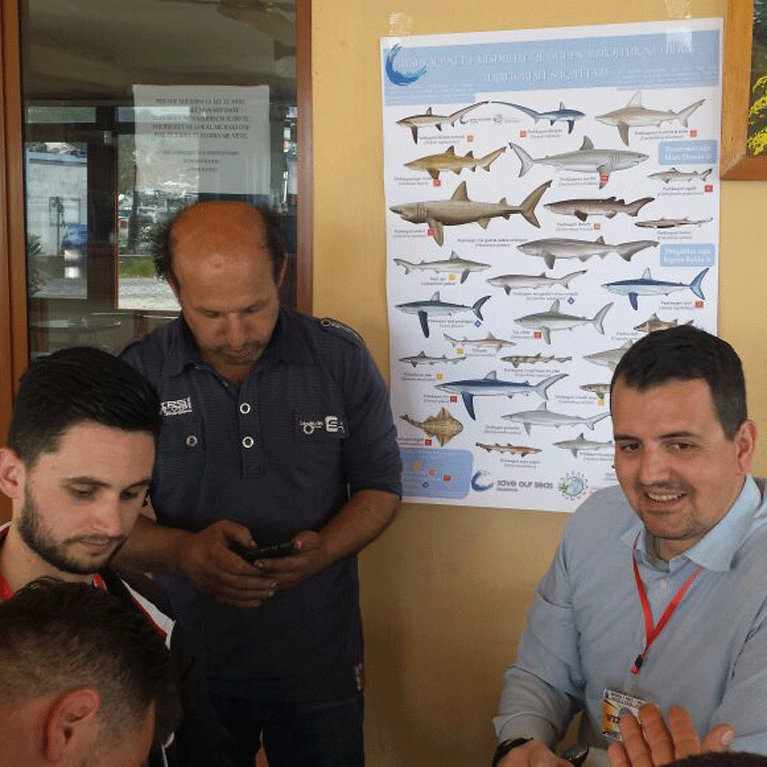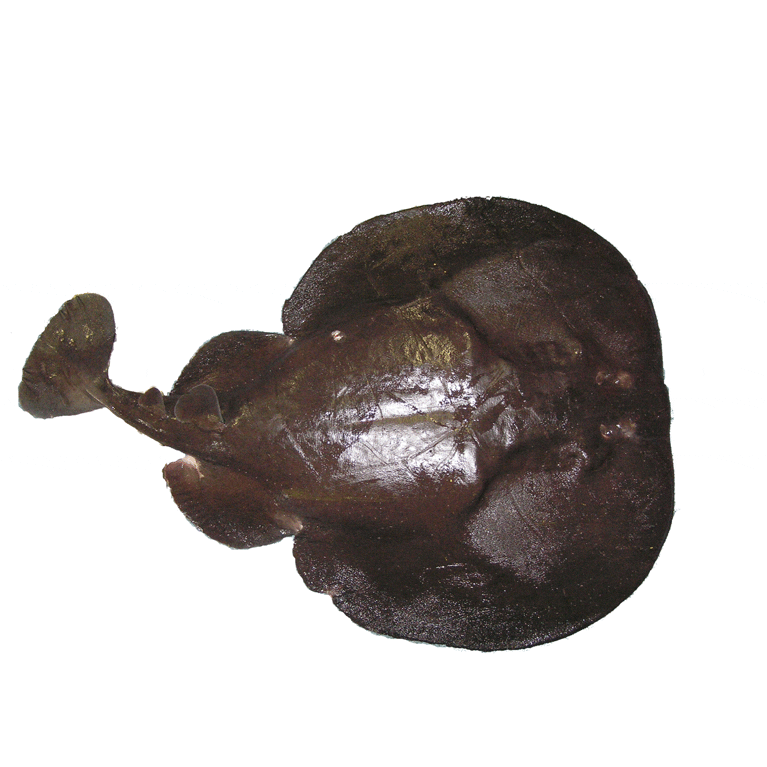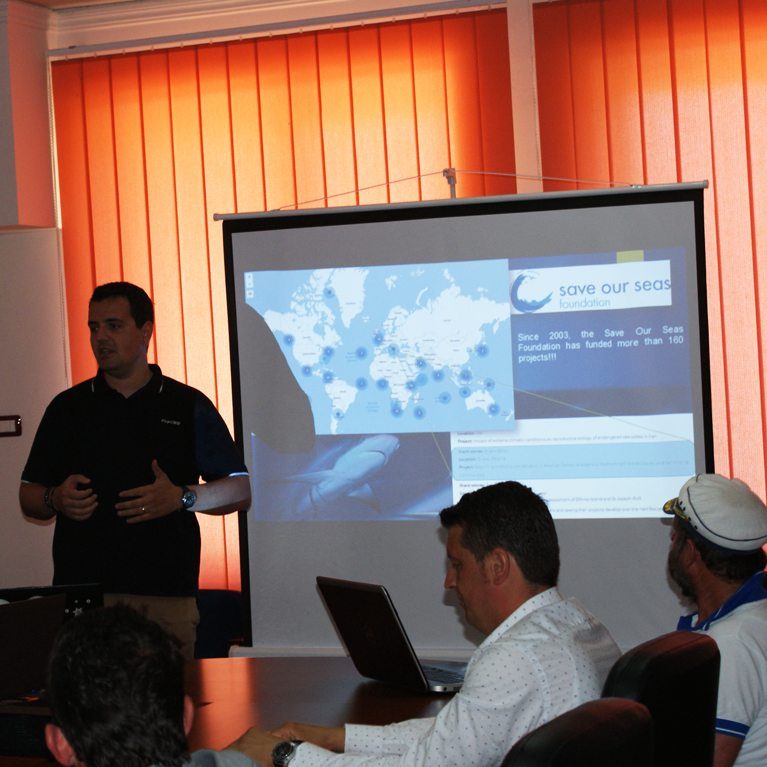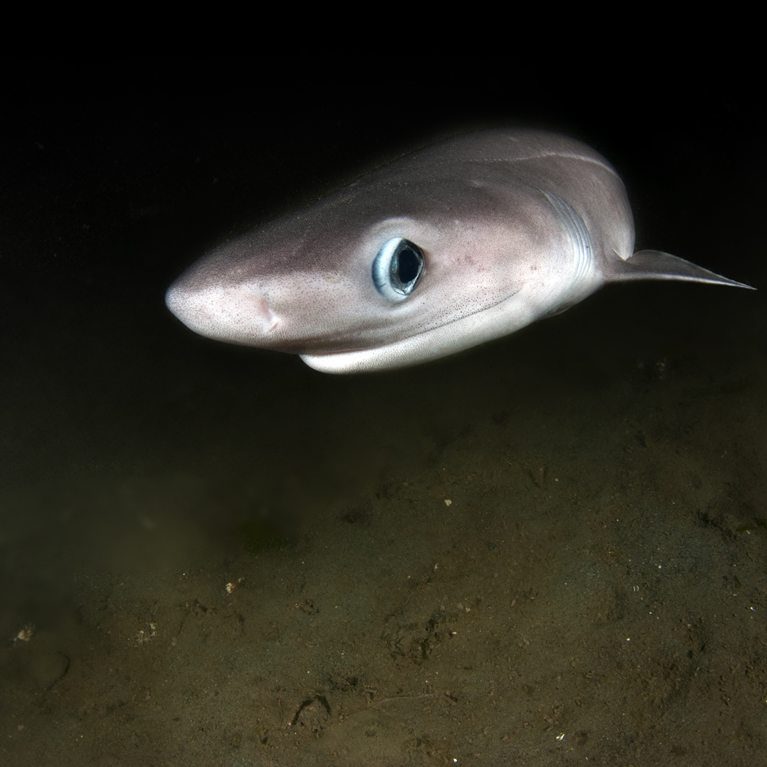The starting point for saving Albania’s sharks
Although Albania has an extensive coastline, very little is known about the country’s elasmobranchs. Rigers will collect catch data from fishers and aquaculture workers and encourage authorities to protect these vulnerable species. He will also engage with coastal communities to sensitise them to the plight of Albania’s sharks.
As a fairly level-headed person and a scientist, I am interested not so much in having my work published or becoming famous as in doing everything I can to protect the marine species off the wild coast of Albania. I am a biologist and while working as a researcher in Italy, which I did until 2012, I used to spend a lot of time in a lab. When I returned to Albania to work for my own country and every day I saw instances of marine species being killed, I decided to give up my previous career and instead get...




Beginning of sharks conservation in Albanian territorial waters by performing fisheries survey and sensitising communities
The IUCN recently concluded that the Mediterranean region has some of the most threatened sharks populations in the world, and 26% of the species are data deficient (2007). No efforts have been done by the governmental authorities about conservation of sharks in Albanian territorial waters, even from the media are reported several cases of killed sharks by the fishermen. Common thresher shark, blue shark, bluntnose sixgill shark and shortfin mako are the most observed species in Adriatic and Ionian seas, respectively. The project results will be used to convince governmental-authorities to prepare a draft for regularizing protection of sharks.
I am the head of Research Group of Aquaculture and Fisheries in the Agricultural University of Tirana. Part of my work is to contact the fishermen and aquaculture specialist. During these meeting most of them told me that it is a big interest to catch sharks and sell them for food. Albania is located in the heart of Mediterranean, where are present about 40 shark species. The main threat to their survival is professional and sportive fishing in both of Albanian seas, Ionian and Adriatic seas, and the neighbor countries. Thus, it is really emergent to start the conservation of sharks in collaboration with Ministry of Environment in the territorial waters by performing a survey over all the Fishing Ports of Albania and Sensitizing mostly the coastal communities.
In the Mediterranean Sea, 20 of the recorded 47 species of sharks (Serena 2005) can be considered top predators in coastal and pelagic ecosystems. In the early 20th century many coastal fisheries targeted sharks or landed them as bycatch. In recent decades, however, large sharks seemed to be restricted to the eastern (Albania, Greece, Cyprus and Turkey) and southern Mediterranean coasts (Bas ̧ usta et al. 2006) or to offshore pelagic waters, where they have been caught, albeit in very low numbers (Tudela et al. 2005). Pelagic fisheries have caught only 3 species regularly: the blue shark, shortfin mako, and thresher shark, whereas the remaining species are caught only occasionally (Megalofonou et al. 2005). Most fisheries are multispecific, and landing statistics are aggregated. These factors have so far impeded the assessment of elasmo-branch abundance and distribution in the Mediterranean Sea and prevented conservation actions. The IUCN recently concluded that the Mediterranean region has some of the most threatened chondrichthyan populations in the world, and 26% of the species are data deficient (Cavanagh and Gibson 2007). Nevertheless, even those that have been classified differently have large uncertainties in terms of distribution, human-induced mortality, and resistance to exploitation. No efforts have been done by the governmental authorities about conservation of sharks in Albanian territorial waters, even in the newspapers and media are shown several cases of killed sharks by the fishermen. For example, in the northern Ionian Sea landings of blue shark declined by 73.76% in abundance and 83.01% in biomass over 21 years (Albania and Sicily). Another species, bluntnose sixgill shark has been caught recently by the fishermen (from Rozafa fleet ship, 2015) and recently (2016) other big shark got entangled in a fishing net near the Bay of Vlore in southern Albania.
- Collect data about their catch from fishermen and marine aquaculture workers, and train them about sharks conservation through informing them about the best practices in the nearby countries/regions, and give them certification as trainers of the future generations regarding sharks protection.
- Sensitising the coastal communities of Albania, from Shkoder/Lezhe (Drini Delta) to Saranda, including representatives of Fisheries Management Organisations, Regional Administration of Protected Areas and Regional Agriculture Directorate.
Concerns after completion of the project:
Though a lot of meetings and workshops have been organized by the project leader and collaborators (in the framework of this SOSF project of two implementation years) with the representatives of coastal communities and fishers, these concerns still exist, which need a longer time to be minimized:
1. Fishers and community’s mentality and knowledge directly create conditions for intentional mortality of sharks without any concrete reason, which is mainly empowered and justified by the negative media presentation of these animals.
2. Among Albanian and regional web sites, social media and other media, the catch of a single shark represents a strike news, especially during the summer season.
3. Generally, it presents a low level of success in prevention of intentional killing, with just a very few cases of individuals, when they are still alive at hauling of the fishing gears.
4. There is a low frequency of investigating the incidental catches of endangered, critically endangered or vulnerable sharks due to poor performance of fisheries inspections – a direct consequence of lack of both human and technical resources.
Recommendations
By following the “unwanted bycatch”, several severe actions should be taken by the government and the competent authorities, at central and regional level in Albania:
– Constant fishing ban of the sharks with the status of Critically Endangered and Endangered by IUCN at Mediterranean level (including the species in Table 1).
– It should not be consider as exception the accidental catch of these species, where up to three individuals for each of the shark species are permitted to be conserved and to be landed, in cases these species are not included in the list of species protected by the international laws (in Albania are just three: sea cow (Mobular mobular), basking shark (Cetorhinus maximus) and the great white shark (Carcharodon carcharias).
– If the individuals of shark are alive at hauling of fishing gears, they should be released if these belongs to species with the status Vulnerable, Endangered or Critically Endangered by the IUCN evaluation at Mediterranean level; belongs to the families protected by the National Law on fisheries (2002, 2012 and regulations); Each individual of these species must be released alive and unharmed if they are caught accidentally. In case of finding a dead shark, they must be landed to determine the cause of death.
– In the list of species/families constantly banned for fishing, should be included these species: Carcharias taurus, Galeorhinus galeus, Odontaspis ferox; all three are vulnerable and their population is decreasing continuously.
– It should be forbidden to remove the head, skin and fins from any shark or ray. It should be required for all shark species to be kept and sold in the condition as they were caught while doing fishing operations.
– It should be forbidden to cut off shark fins for the market and throw back their bodies to the sea.
– Endangered or Critically Endangered species (according to IUCN evaluation at Mediterranean level) present in the list of commercially important shark species (Prionace, Squatina and Rhinobatos) should be removed from this list.
– A minimum allowed length for three commercially important species should be stipulated as well:
For Mustelus sp. the minimum allowed length should be 75 cm, (actually in Albania, Mustelus sp are fishing permitted, if the length is higher than 30 cm); for Scyliorhinus sp. it should be 60 cm (actually in Albania, Scyliorhinus sp are fishing permitted, if the length is higher than 40 cm) and for Squalus sp. it should be 65 cm (actually in Albania, Squalus sp are fishing permitted, if the length is higher than 40 cm).
– In the logbooks, it should be reported the popular name of the commercially important shark species, and it should not be reported just as “sharks”.
– The law provision fine for these infringements should be taken for individuals as well as for legal entities.
– Continuous monitoring and informative meetings (mainly for fishers) should be organized by the Ministry of Agriculture and the Ministry of Environment.
All these recommendations should be taken into consideration for drafting a National Action Plan in collaboration with the competent institutions (Ministries and relative Directorates) and all the interested stakeholders (FMOs, professional and sportive fishers, fishing companies etc).

